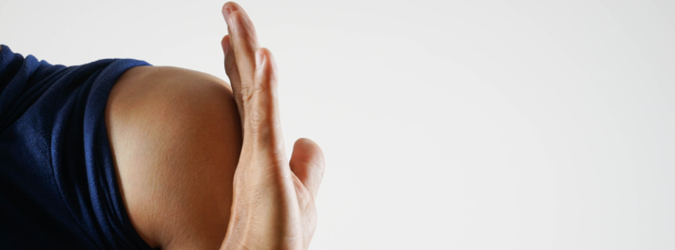Who Calls the Shots?
4.1.2019
A short time after Marina Williams moved to Orchard Park, her two daughters, aged 13 and 15, were sent home from school because their vaccinations were not up to date.
Williams claimed their religious beliefs prevented her daughters from getting the vaccinations as otherwise required by the school district. The district denied her petition for a religious exemption to the rule.
Williams then accused the Orchard Park School District of violating state law and sued them. In February, state Supreme Court Justice Mark Grisanti sided with the district. Williams’ two daughters have remained out of school for several months.1
In March, amid a measles outbreak, a federal judge denied a temporary injunction that would have allowed 44 unvaccinated children to go back to the Chestnut Ridge school in Rockland County. Lawyers for two dozen unnamed parents and students filed a lawsuit against the Rockland County Health Department and its commissioner, challenging the order barring the children from school until they get their vaccinations.2
The outbreak there has mostly affected the Orthodox Jewish community in neighboring towns. Commissioner Patricia Schnabel Ruppert’s order requires area schools to keep unvaccinated children from attending if vaccination rates are under 95 percent.
U.S. District Court Judge Vincent Briccetti in White Plains sided with Ruppert and the health department, ruling that the plaintiffs failed to prove that the public interest weighs in their favor.
“It’s a tough situation and I feel bad about it . . . but I don’t feel I have the authority to do this,” Briccetti reportedly told the plaintiffs.
These are just two examples in New York of lawsuits stemming from the anti-vaccination movement, typically pitting parents against school districts. The controversy has garnered considerable attention in recent months as several measles outbreaks have swept across parts of the country.
In addition to those who oppose vaccinations for religious reasons, some parents blame vaccinations for health problems in children, such as autism. However, the medical community opines that the benefits of vaccinations to society far outweigh any risks and that the anti-vaccination movement is largely based on poor science and fear-mongering.
For some families, even the parents themselves disagree on whether their children should be vaccinated. In Michigan, Lori Matheson is in court with her ex-husband Michael Schmitt, as Schmitt wants their young child to be vaccinated and Matheson does not.3
Matheson, seeking an exemption for religious reasons, claims autoimmune disease runs in her family and believes vaccines can cause autism. Schmitt wants the court to order vaccinations for the child and does not believe religion has anything to do with his ex-wife’s anti-vaccination stance.
Two years ago a Detroit mom, Rebecca Bredow, was jailed for a week and had her custody rights reduced for failing to comply with a court order to have her child vaccinated. Bredow and her ex-husband, James Horne, were in court over their dispute regarding vaccinations. In the past, Bredow had ignored other court orders from their divorce such as changing the child’s school without Horne’s consent.4
‘Genuine and Sincere’
In New York, Public Health Law § 2164 requires parents to vaccinate their children against serious diseases like measles, polio, chicken pox and whooping cough. New York Education Law § 914 requires schools to comply with that statute. Further, the immunization documents schools must receive from parents before admitting a child are set forth in Department of Health regulations. Most school districts have also adopted policies that reinforce these various laws and regulations.
There are two exemptions from these laws. First, is a medical exemption because an immunization may be detrimental to the child’s health, certified by a licensed physician. Second, the child’s parents have a “genuine and sincere” religious belief preventing the vaccinations.
Candace J. Gomez, of Bond, Schoeneck & King in Garden City, has spent her career as an education lawyer representing public school districts, private schools, colleges and universities. She explained that school principals are ultimately responsible for deciding religious exemption requests. If parents object to having their children immunized, schools send a Request for Religious Exemption to Immunization Form for the parents to fill out. If the school has further questions after receiving the form back, they can request additional documentation from an authorized representative of the church, temple, or religious institution attended by the parents and schedule a meeting with the parents, among other options.
Gomez said the parent must be informed in writing of the approval or denial by the school principal. If the request is denied, a reason must be provided and then a parent may appeal the decision to the Commissioner of Education within a specified time period, which is generally 30 days.
“The school wins in most circumstances where a parent appeals to the commissioner based on a denied religious exemption because the parent has the burden of proof,” said Gomez. “Although it may be difficult for a principal to determine whether a parent’s religious belief is genuine and sincere, if the principal follows the proper procedures and does not make an arbitrary and capricious decision, then the commissioner will usually defer to the principal’s judgment.”
Charles C. Nicholas, of Chesney, Nicholas & Brower in Syosset, represents parents in vaccination disputes with school districts. Nicholas said about 98 percent of the cases that get challenged to the Commissioner of Education end there and do not go to court. He said the commissioner sometimes does rule in favor of the parents. The other 2 percent, he said, are the cases the public typically hears about in the media.
Nicholas said that due to the recent measles outbreak, a lot of schools were sending out letters to parents saying they had changed their rules and were not accepting any religious exemptions with regard to vaccinations. Nicholas, on behalf of his clients, would then point out to the schools that they were breaking the law and the schools would soon return to following the proper laws and procedures.
Case Law and Legislation
The requirement that all children get vaccinated before going to school dates back to 1905 when the U.S. Supreme Court in Jacobson v. Massachusetts5 upheld a Massachusetts law mandating vaccinations for smallpox. Then, in 1922, the court in Zucht v. King6 relied on the Jacobson ruling to affirm a Texas law requiring vaccinations for school children.
New York Public Health Law § 2164 requiring all school children to be vaccinated was recently challenged in federal court and in 2015 the U.S. Court of Appeals for the Second Circuit upheld the law. In Phillips v. City of New York,7 the parents had argued that the law violated their substantive due process rights, the Free Exercise Clause of the First Amendment, the Equal Protection Clause of the Fourteenth Amendment and the Ninth Amendment.
Disagreeing with the parents, Judges Gerard Lynch, Denny Chin and Eastern District Judge Edward Korman, sitting by designation, upheld the decision of Eastern District Judge William Kuntz that deemed the law constitutional.8
In light of the recent measles outbreaks in Rockland County and Brooklyn, a pair of lawmakers in New York, Assemblywoman Patricia Fahy and state Sen. Liz Krueger, have proposed legislation that would allow any child 14 years of age or older to receive vaccinations without their parent’s consent.
The bill proposal in March came just days after 18-year-old Ethan Lindenberger testified at a Congressional hearing that his anti-vaccination mother fell victim to online conspiracy theories. Once old enough to decide on his own, Lindenberger has been catching up on all the vaccines he never received as a child.
“God knows how I’m still alive,” Lindenberger said in a Reddit post.
Other states have taken more drastic action, including California, which eliminated the religious exemption from their vaccination law in 2015 in light of measles outbreaks and declining vaccination rates. So far, a similar proposal in New York has not received any support from lawmakers.
Nolan is NYSBA’s senior writer.
1. https://www.wivb.com/news/local-news/judge-rules-in-favor-of-orchard-park-schools-in-case-of-unvaccinated-students/1784781859.
2. https://www.usatoday.com/story/news/nation/2019/03/12/measles-outbreak-unvaccinated-students-barred-rockland-county-school/3145739002/.
3. https://www.clickondetroit.com/news/michigan-anti-vaccination-case-due-back-in-court-for-motion-hearing
4. https://www.today.com/health/detroit-mom-jailed-refusing-court-order-vaccinate-child-t117126.
5. 197 U.S. 11 (1905).
6. 260 U.S. 174 (1922).
7. 775 F.3d 538 (2d Cir.), cert. denied, 136 S. Ct. 104 (2015).
8. Id.






